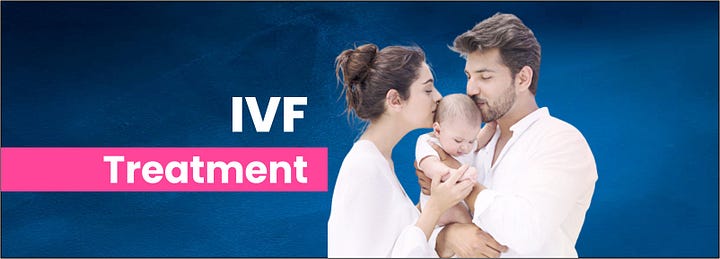Exploring the Science and Process of In Vitro Fertilization (IVF)
Body
Introduction:
In Vitro Fertilization (IVF) has revolutionized the field of reproductive medicine since its inception in the late 20th century. It offers hope to couples struggling with infertility, enabling them to conceive and experience the joy of parenthood. This article delves into the science behind IVF Treatment, its procedures, and its significance in modern reproductive healthcare.
Understanding IVF Treatment:
IVF is a complex assisted reproductive technology (ART) that involves fertilizing an egg with sperm outside the body, in a laboratory dish. The fertilized egg, or embryo, is then implanted into the uterus, where it can develop into a fetus.
The IVF Process:
Ovarian Stimulation: The woman undergoes hormonal therapy to stimulate the ovaries to produce multiple eggs. This is crucial as it increases the chances of successful fertilization.
Egg Retrieval: Once the eggs have matured, they are retrieved from the ovaries using a minimally invasive surgical procedure called transvaginal ultrasound aspiration.
Sperm Collection: Meanwhile, the male partner provides a sperm sample, which is processed to extract the healthiest and most active sperm.
Fertilization: In the laboratory, the retrieved eggs are combined with the sperm in a controlled environment. Fertilization typically occurs within hours.
Embryo Culture: The fertilized eggs are monitored as they develop into embryos over the next few days. The healthiest embryos are selected for transfer.
Embryo Transfer: One or more selected embryos are transferred into the woman’s uterus using a thin catheter. This step is usually painless and does not require anesthesia.
Pregnancy Test: Approximately two weeks after embryo transfer, a pregnancy test is conducted to determine if implantation has occurred.
Factors Influencing IVF Success:
Several factors can impact the success of IVF, including the woman’s age, overall health, ovarian reserve, and the quality of the embryos. Additionally, lifestyle factors such as diet, exercise, and stress management can also play a role.
Benefits of IVF:
IVF Treatment offers hope to couples facing infertility due to various reasons, including blocked fallopian tubes, endometriosis, male factor infertility, or unexplained infertility. It also provides options for same-sex couples and single individuals who wish to have children using donor eggs, sperm, or embryos.
Challenges and Risks:
Despite its high success rates, IVF is not without challenges and risks. It can be emotionally and financially demanding, requiring multiple cycles for success. Additionally, there is a slight risk of complications such as ovarian hyperstimulation syndrome (OHSS), multiple pregnancies, and ectopic pregnancies.
Conclusion:
The Fertility Cure Centre is dedicated to providing a top-notch IVF process, implementing the latest advancements, and customizing care to meet your unique needs. Our mission is to enable you to fulfill your dream of becoming a mother by offering you strong support and expert medical treatment every step of the process.















Comments